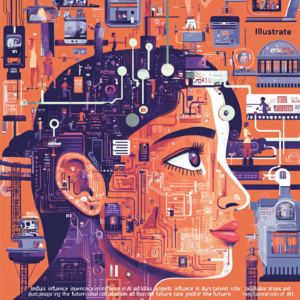
OpenAI’s Altman Raises the Alarm on EU AI Regulation
Picture this: the European Union, with its regulatory prowess and passion for human rights, decides to turn its gaze toward the realm of artificial intelligence. Fast forward to March 2024, when the EU AI Act kicks in, aiming to ensure that AI doesn’t just run amok, but behaves in a manner that is transparent and respectful. OpenAI’s CEO, Sam Altman, isn’t applauding; he’s sounding the alarm, and for good reason. Here’s a deep dive into what’s brewing in the world of AI regulations and why Altman is waving a caution flag.
The EU AI Act: What’s in the Pot?
To say the EU AI Act is comprehensive is an understatement. It’s like a meticulous recipe, designed to balance a myriad of ingredients that make up the AI ecosystem. The EU wants AI to be safe, reliable, and above all, benevolent—stuffed with human rights, dignity, and really good intentions. But as delightful as that sounds, the devil is in the details. Here’s a taste of what the act covers:
- High-Risk Systems: Certain AI applications, including heavy-hitters like OpenAI’s ChatGPT and GPT-4, have been labeled “high-risk.” These systems will face intensified scrutiny and a laundry list of safety requirements. It’s like giving specific babies extra attention at a daycare, fully justified but quite a handful.
- Ban on Certain Practices: The act has its limits too. It outright bans the use of AI tools that snatch images from the internet to build facial recognition databases, along with those that gauge criminal risk based solely on biometric data. In short, it’s a no-fly zone for certain incomprehensible tech shenanigans.
Altman’s Concerns: Stirring the Pot
Now, Altman isn’t just rolling his eyes and mumbling to himself. He has some serious concerns that warrant our attention. Not that we’ll ignore them just because we’re in a state of “regulation fascination.”
- Compliance and Economic Ramifications: Sam Altman, in his infinite wisdom, warns that while OpenAI will play ball with the EU AI Act, the hefty regulatory load could weigh heavily on economic dynamics in Europe. He’s not just worried about paperwork; he fears that if complying with the new rules becomes too cumbersome, OpenAI might pack up and call it quits in Europe. Now that would be a diplomatic slap that no one wants to see.
- Competitive Disadvantage: Altman has his eye on the bigger picture. He’s fearlessly declaring that these regulations might turn Europe into a tortoise in a race where hares, elsewhere, zoom by. The cautious regulatory stance, while well-meaning, could chew up innovation like a bad recipe—leaving Europe trailing behind other regions unburdened by the same dogmatic oversight.
Reactions: A Tasty Debate
Given that the EU AI Act has stirred a cauldron of mixed responses, you can imagine the conversations brewing in boardrooms and coffee shops alike. It’s an age-old tale, really, of innovation vs. regulation. Some are heralding the regulations with the fervor of acolytes. They argue that these protections are essential, creating a “human-centric, trustworthy AI” environment—everything you’d want to hear at a tech summit.
On the flip side, the innovation enthusiasts are hitting the panic button. They believe that the regulations could be like pouring cold coffee on a hot brew—dousing the flames of creativity and pushing talent and drive toward less regulated havens. That divergence between approaches could turn Europe into a sleepy town, while innovation in the U.S. and beyond thrives like an unstoppable wildfire.
Adapting to the New Recipe
But let’s not forget, tech companies are notoriously known for their knack for adaptation. In the face of regulatory hurdles, they’ve rolled up their sleeves to whip up some compliance strategies.
- Data Localization Madness: OpenAI is jumping on the train of data localization—making sure European customers’ data is stored safely within the EU. This is akin to building a fortress around a pot of gold, ensuring they’re adhering to the rules while cooking up new ideas. It’s all about showing respect for regulations while keeping that creative flame alive.
- Commitment to Europe: And there’s more. Corporate giants, like Microsoft, are still pouring significant investments into AI infrastructure across Europe. This shows a commitment to remain in the race despite the prickly bush of regulations. So, the tech beat goes on, even if the notes might sound a bit different.
Wrapping It Up: The Balance of Cooking
So, where does all this leave us? The EU AI Act is significant, to say the least. It’s like a chef deciding the right amount of spice to add—too much could sour the dish, yet too little may leave it bland. The debate continues on how to strike the right balance between innovation and ethical compliance. As Altman and his contemporaries navigate these often-turbulent waters, one thing is crystal clear: the conductors of tomorrow will need to compose a symphony between advancement and societal responsibility.
As you chew on that, let’s keep the conversation rolling. Want to stay up to date with the latest news on neural networks and automation? Subscribe to our Telegram channel: @channel_neirotoken

